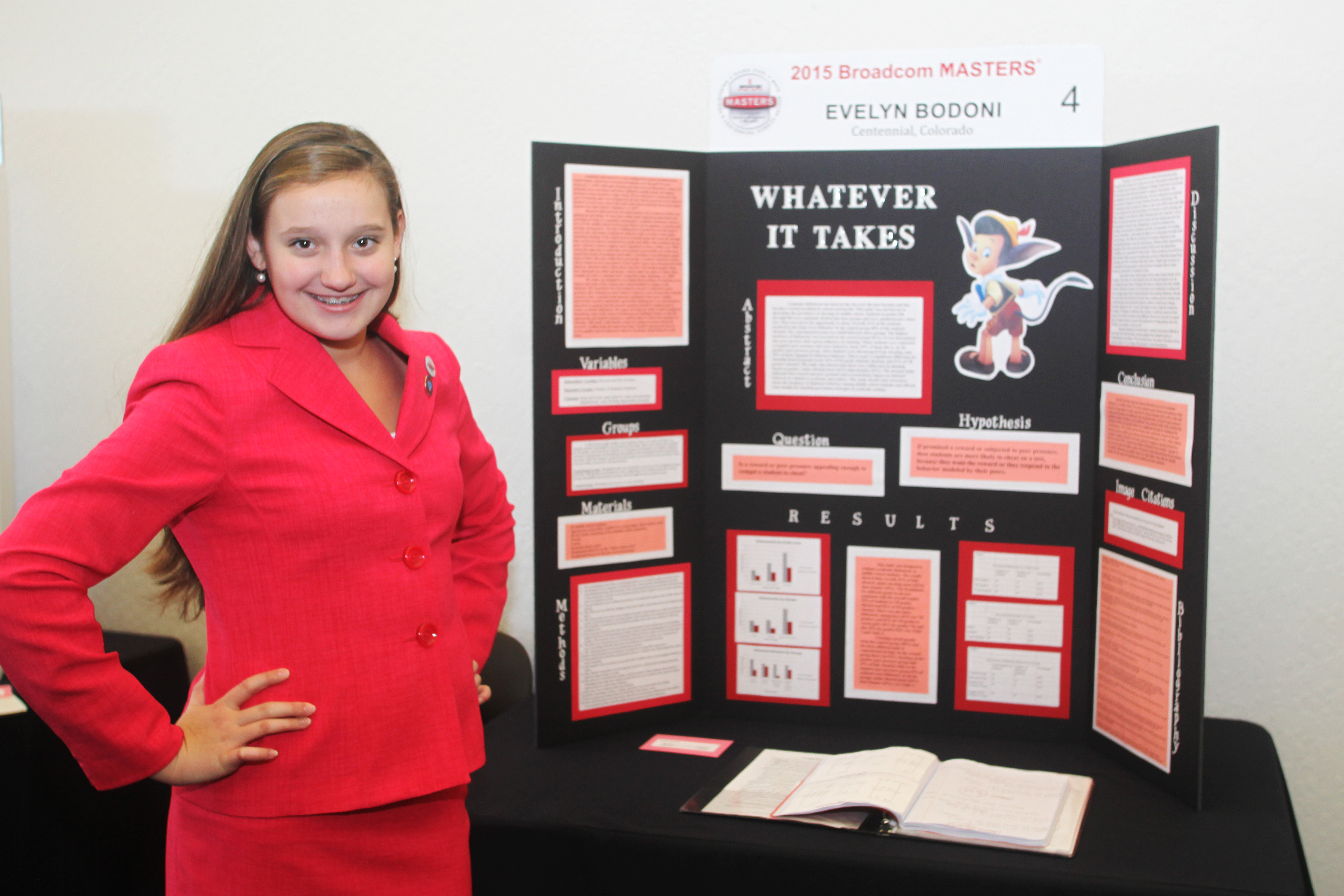Society competitor looks to science to discourage academic cheating

Cheating in school: what does science tell us about why it happens … and how to prevent it?
That’s the subject of a new study by Society competitor Evelyn Bodoni — and her results show that positive peer pressure might hold the key to discouraging cheaters.
Become a champion for strong science like Evelyn’s — join the Society today.
Bodoni, a middle school student at Challenge School in Denver, Colo., and a 2015 Broadcom MASTERS finalist, recruited a total of 68 students from her school in grades 5th through 8th and assigned 20 to a control group, and 16 students each to three experimental groups.
Each group took a test in a room where an unseen observer could watch them. Students knew that the test answers were on the back, but they were told not to turn over the test form.
First finding? “There is a lot of academic dishonesty occurring in [my] middle school,” said Bodoni, who reported that overall, “fifty-one percent of the students tested cheated.” And even though the control group had no incentive to cheat, 40 percent of them did so anyway.
But Bodoni was also interested in identifying specific behaviors or cues that, as she put it, she said, “enticed students to cheat, so that corrective preventive measures could be implemented.”
“The percentage of cheaters rose to 69 percent in the negative peer pressure test group and 81 percent in the reward test group,” she said.
On the other hand, only 19 percent of the students in Bodoni’s study cheated when they were exposed to positive peer pressure that discouraged cheating.


